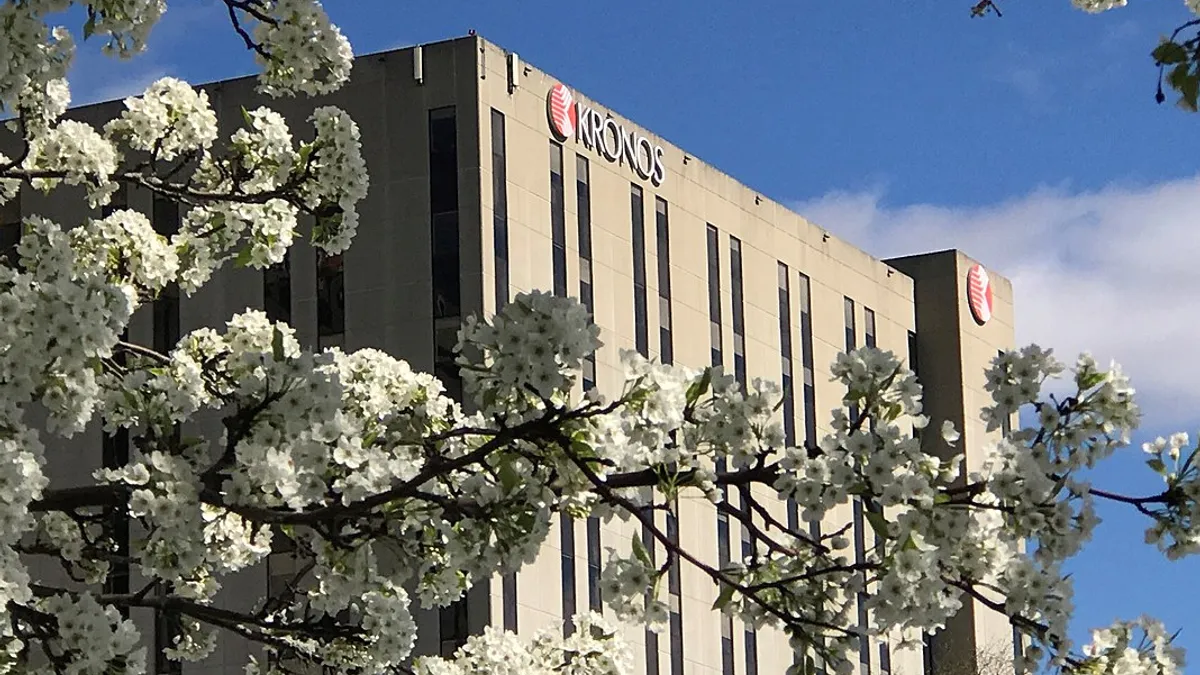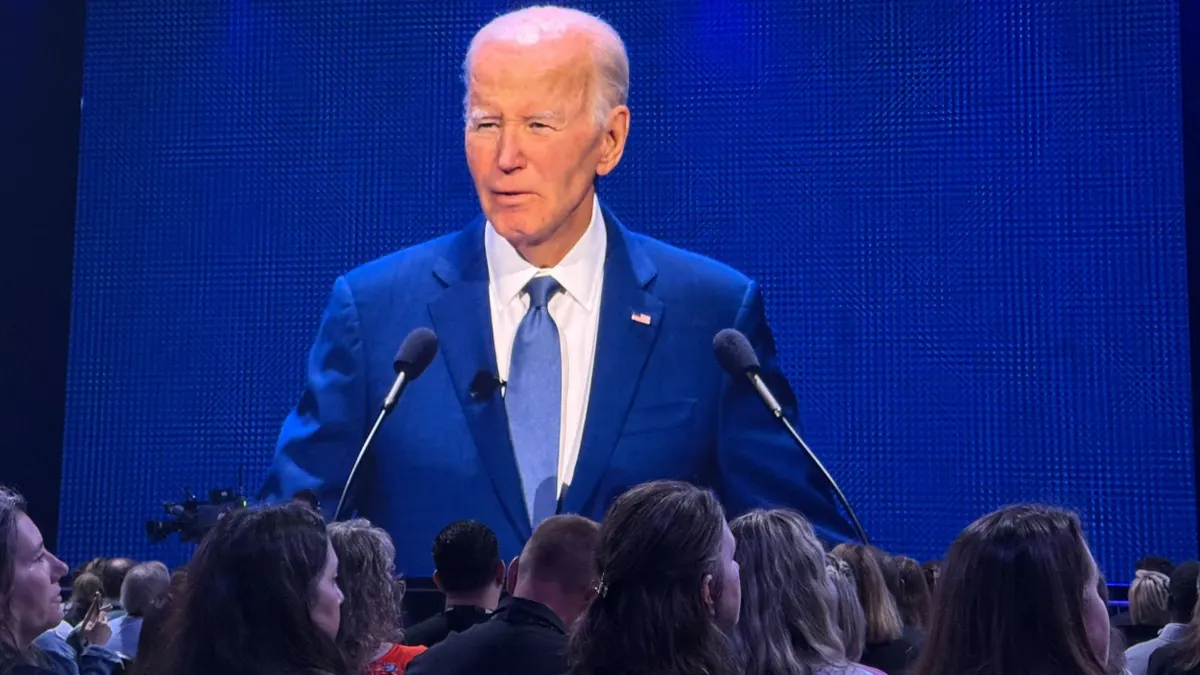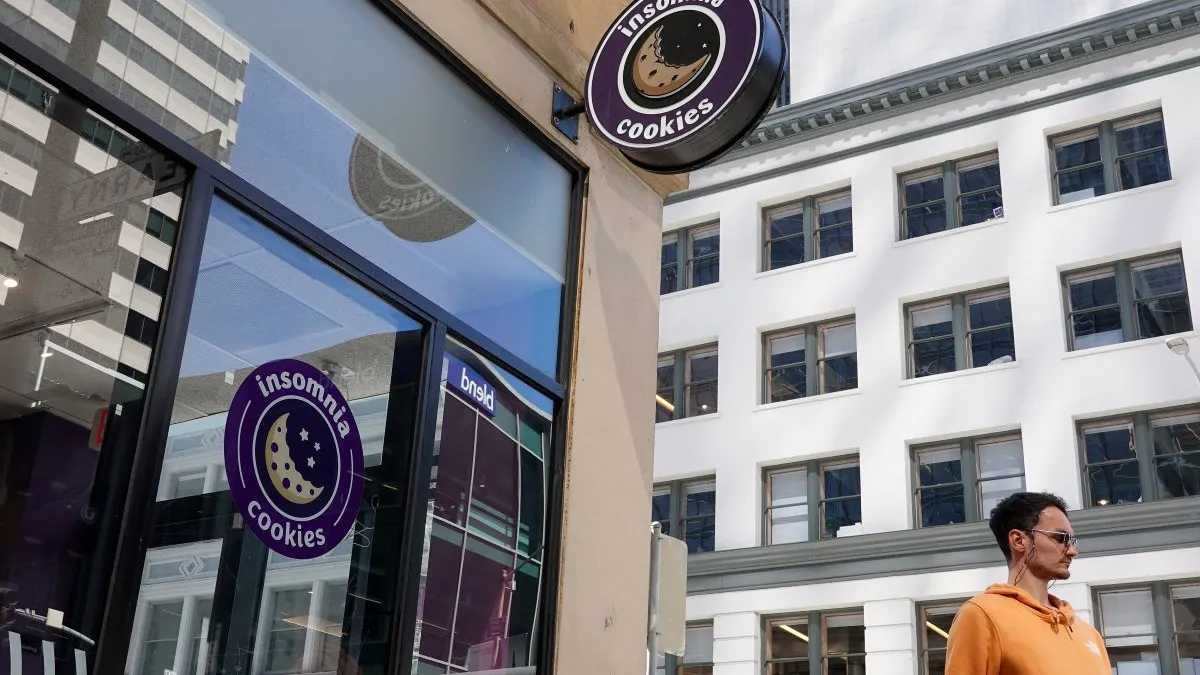Last month marked one of the biggest merger announcements in the human capital management (HCM) space in recent memory.
When Kronos and Ultimate Software, both owned by private equity firm Hellman & Friedman, merged to create a company with a combined annual revenue of $3 billion, experts took notice. The pair were already two of the bigger participants in the HCM market, Mark Brandau, principal analyst at Forrester, told HR Dive in an interview.
"This area has always been very dynamic," Brandau said, attracting large amounts of funding from venture capital and private equity. He noted that it's not unprecedented for M&A in the space to occur under the umbrella of a private equity firm, particularly between smaller companies and organizations. But, "they're kind of like pebbles in the pond," Brandau said. "These are kind of like boulders splashing in the pond."
The deal is bound to create "ripple effects," Brandau said. Even companies that aren't directly clients of either Kronos or Ultimate may see changes to their partnership agreements with other vendors.
Those who are clients of the two firms "need to be really loud right now," Brandau said, and should apply pressure to ensure that any post-merger agreements provide the integrations, products and user experiences desirable to clients and their workforces.
"These are kind of like boulders splashing in the pond."

Mark Brandau
Principal Analyst, Forrester
An employer may, to use Brandau's example, have a relationship with both Kronos and SAP SuccessFactors. Post-merger, the new company would have access to Ultimate's product line, which includes cloud-based HCM offerings, like UltiPro, that compete with SuccessFactors, Brandau said.
Kronos and Ultimate have said they intend to maintain existing partnerships after the deal, Brandau said, but this doesn't necessarily mean other vendors will do the same. Employers facing a situation like the one described in this example will need to be vocal with any partners in order to determine exactly what changes they'll need to make with respect to those partnerships.
"They have to put the customer at the front of it," Brandau said of Kronos and Ultimate, although both, he said, "have a pretty good reputation in those regards."
Going forward the two firms will aim to maintain existing customer relationships, John Machado, chief technology officer of Ultimate, told HR Dive in an interview. "We've both been built on 30 plus years of strong customer retention," he said. "We take that seriously."
Machado also noted that both firms have less than 4% of customer overlap, or about 400 customers in common. "All the solutions you have and purchase from either of us, we are going to keep building on and delivering on," he said.
Digital transformation is a big talking point as Kronos and Ultimate decide how to iterate their product offerings moving forward. Both have an AI-powered solution, Kronos with AIMEE and Ultimate with Xander, and Machado said the firms are looking to bring the solutions together to provide a "full 360 view of an employee" and better map out employee life cycles.
The merger likely will combine Kronos and Ultimate's different strengths, Brandau predicted. Ultimate, he said, is known for its "full set of HCM capabilities," particularly workforce analytics. Kronos, on the other hand, is more widely known for its platform's time and attendance capabilities.
He added that the merger provided an important lesson for employers as they seek to form partnerships on digital transformation. "I think this speaks to the broader approach of digital transformation that organizations try to attempt," Brandau said. "No one should think of their transformation as 'done.'"
Vendors like Kronos and Ultimate, Brandau added, are constantly looking to explore new niches and iterate on their products. That means employers need to be flexible in the event of an M&A or other development. "It's really hard to lock in," he said. "Things like this are going to happen."
Change is essentially a client's expectation from Ultimate's standpoint as a "software as a service" (SaaS) provider, according to Machado. "You're always replacing your old product," he said. "Part of why customers move to SaaS is that they expect to continue to get new value. We're always looking to continually improve our solutions."
Ultimate is constantly revisiting what it means to deliver value to clients, Machado said, but the difference this time around is that instead of looking to build a new product or acquire another brand right away, the post-merger company will take time to look at its entire portfolio. "We may not need to have two to three solutions for the same market anymore," Machado said. "The difference here is that for a certain market, we both had a solution that has equal value, and we may need to decide to go with one or the other."
Going forward, the companies will emphasize trust in dealing with clients above all else, he added. "We're going to do the right thing, it really is simple as that."



















